#Paul Lukin
Explore tagged Tumblr posts
Text
a toki pona translation of the "kick my head" scene from 'the guy who didn't like musicals'
(i.e., something nobody needs or asked for but I did it anyway)
please provide feedback on my toki pona if you spot a mistake! I am certainly not an expert and this was just something fun I did for practice.
the characters
(names have been tokiponized for completeness)
jan Pili = Bill Woodward
jan Tete = Ted Spankoffski
jan Pa = Paul Matthews
the translated scene
jan Pili: ona li toki e tomo pi telo nasa ni li jo ali. mi jo ala e kili loje lili. mi pali e telo pi jan Sali Tanpo tan seme?
jan Tete: a jan Pili, ali li tawa pini. taso sina tawa telo la sina tawa alasa pali e telo pi jan Suli Tanpo?
jan Pili: a, ali li ike mute la mi toki e ni: mi ken wile e jan pona tawa!
jan Tete: pona. mi pilin e ni: jan lawa li lukin e sina la sina ken pona e ilo kon ona. ni la ona li jaki e sina kepeken ijo jaki laso ona. o lon!
jan Pili: sina awen toki ike e mi la mi tawa... pali ijo e sina!
jan Tete: a, jan Pili? sina tawa pali e seme?
jan Pili: mi tawa... noka e... lawa sina!
jan Tete: a. lawa mi.
jan Pili: lon!
jan Tete: sina tawa noka ala e monsi mi?
[tenpo lili la jan Pili li awen.]
jan Pili: lon!
jan Tete: a, mi tawa lukin e ni! a? o noka e lawa mi! jan utala Kalate suli o tawa! mi wile lukin e ni: sina noka e ijo pi sewi sijelo sina. o pana lukin e noka sike ni tawa mi! o pana lukin e noka sewi tawa mi, jan utala sewi li pana sona e ni tawa sina!
jan Pa: a, sina tu o pona! jan Tete o sona e ni: jan Pili li noka ala e lawa sina.
jan Tete: ona li noka ala tan seme? lawa li ijo sijelo wawa lili! jan sewi Pili li pana sona e ni tawa mi.
jan Pa: ona li toki ike pakala, o awen toki ala e ona. mi sona a ni: ona li ken toki sin la ona li toki e "monsi".
jan Tete: ala, ala, sina wile moli e akesi linja la sina pali e seme? a? sina kipisi e lawa ona. sijelo kala li kama jaki lon seme? lawa ona. sina weka e lawa la sijelo ali li moli! tan ni la jan alasa pi kala li alasa... e lawa!
[jan Pili li utala e luka jan Tete.]
jan Tete: a! o tawa ala, jan Pili o tawa ala!
jan Pa: o pana e ni tawa mi...
[jan Pa li jo e telo nasa tan jan Tete.]
jan Pa: ni li wile pona e mi, ni li kama ala e pilin ike insa mi.
jan Tete: suli ala!
[pini.]
the original scene (starting at 52:47 and ending at 54:33)
just in case you're seeing this post and have not seen the guy who didn't like musicals (which could be likely, seeing as I'm posting this under the toki pona tag), the scene I've translated above is in the video linked below for reference.
youtube
#hatchetfield#tgwdlm#the guy who didn't like musicals#toki pona#it took me three months but I finally got to finishing this#i need to stop thinking about tgwdlm part ??#was originally thinking about translating all of tgwdlm for the bit but. that would be a little too damaging to my art plans this summer
10 notes
·
View notes
Text
i decided to unite my love for maps and for OT and make a map of the distribution of OT contestants from OT 2017 - 2023 in regards to their residence* because i find it so fascinating, like yeah it does kinda follow where major urban centers concentrate but also why is there so little people in valència? so many in iruña specifically? how is that outside madrid the only other OT contestant from castile is from guadalajara from all places???
*I followed the locations from the wikipedia page; in OT it's necessary to reside in spain but you don't need to have the spanish nationality to participate so i'll add the nationalities when needed!

below the cut i'll specify where each contestant is from, province by province, with pics of all the towns and cities !!!
A CORUÑA:
OT 2017: Pontedeume (Miriam Rodríguez), Santiago de Compostela (Roi Méndez)
OT 2018: As Pontes de García Rodríguez (Sabela Ramil)
OT 2020: Sada (Eva Barreiro)
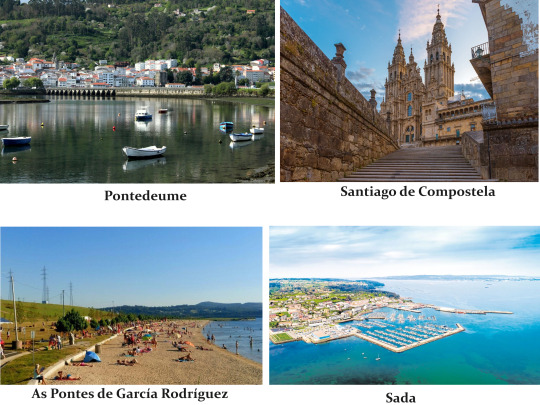
OURENSE:
OT 2017: Ourense (Luis Cepeda)

BIZKAIA:
OT 2017: Bilbo (Juan Antonio Cortés)
OT 2023: Getxo (Martin Urrutia)

NAFARROA:
OT 2017: Iruña (Amaia Romero)
OT 2018: Iruña (Natalia Lacunza)
OT 2020: Iruña (Anne Lukin, Maialen Gurbindo)
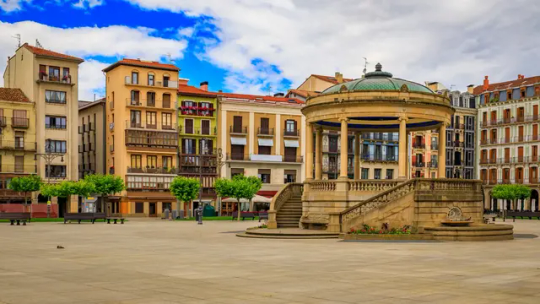
ZARAGOZA:
OT 2023: Zaragoza (Naiara Moreno), Magallón (Juanjo Bona)
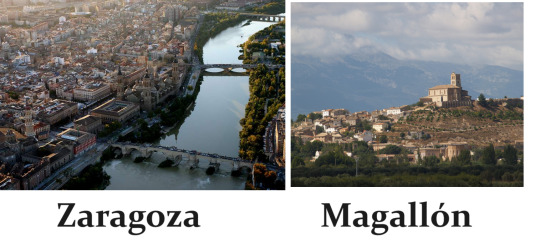
TERUEL:
OT 2020: Alcañiz (Anaju Calavia)
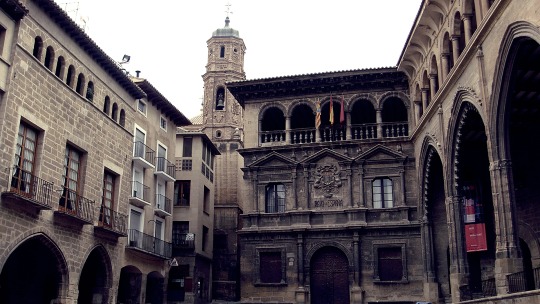
BARCELONA:
OT 2017: Sant Climent de Llobregat (Aitana Ocaña), El Prat de Llobregat (Alfred García), Gavà (Nerea Rodríguez), Montgat (Raoul Vázquez), Terrassa (Miki Núñez)
OT 2018: Esplugues de Llobregat (Carlos Right)
OT 2020: Sant Cugat del Vallès (Nick Maylo), Sant Joan Despí (Ariadna Tortosa)
OT 2023: Vallirana (Lucas Curotto, he's Uruguayan)

ILLES BALEARS:
OT 2017: Palma (Ricky Merino)
OT 2018: Bunyola (Joan Garrido)
OT 2023: Ciutadella de Menorca (Chiara Oliver, she's half British)

GUADALAJARA:
OT 2023: Yunquera de Henares (Omar Samba, he's half Senegalese)
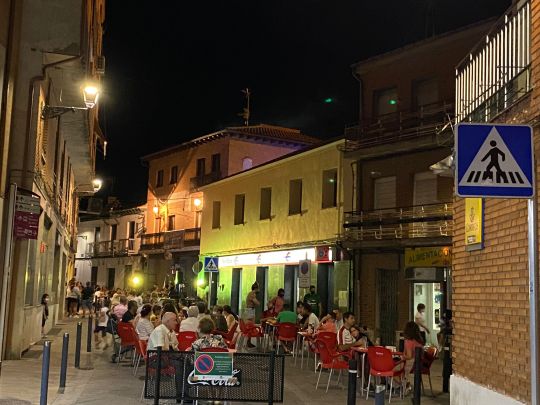
MADRID:
OT 2018: Madrid (María Villar, África Adalia, Alfonso La Cruz - he's Venezuelan)
OT 2020: Alcalá de Henares (Bruno Alves, he's Uruguayan)
OT 2023: San Fernando de Henares (Bea Fernández), Madrid (Ruslana Panchyshyna, she's Ukranian and has lived several years in the Canary Islands; in fact her accent is Canarian. I do not know which island / town and in the wikipedia page it listed her as a Madrid resident, that's why she's included here)

CÁCERES:
OT 2017: Malpartida de Plasencia (Thalía Garrido)
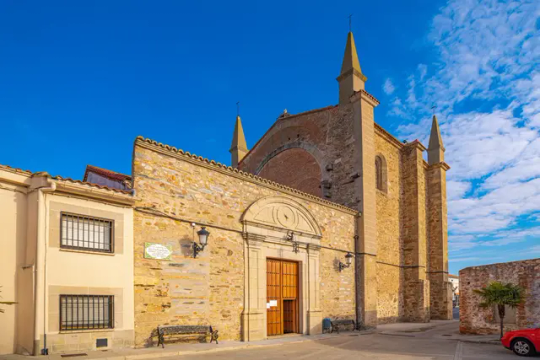
ALACANT:
OT 2018: Elx (Alba Reche)
OT 2020: Beniarrés (Samantha Gilabert)
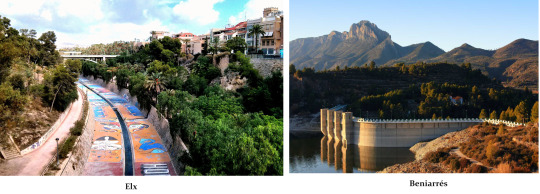
MURCIA:
OT 2020: Murcia (Flavio Fernández)
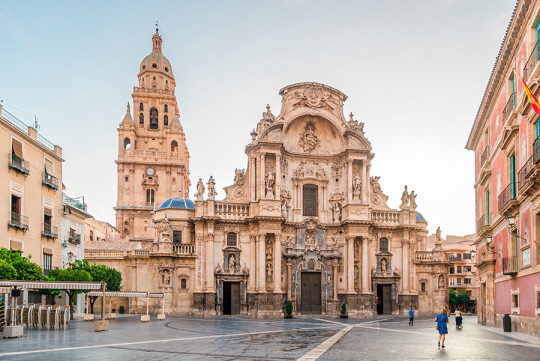
GRANADA:
OT 2017: Huétor Tájar (Mimi Doblas)
OT 2023: Armilla (Paul Thin), Motril (Violeta Hódar), Ogíjares (Denna Ruiz)
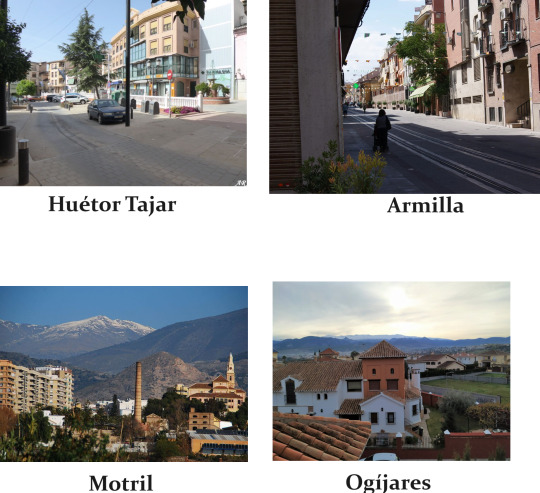
MÁLAGA:
OT 2017: Alhaurín de la Torre (Mireya Bravo)
OT 2018: Torre del Mar (Marta Sango), Málaga (Noelia Franco)
OT 2023: Mijas (Salma Díaz)
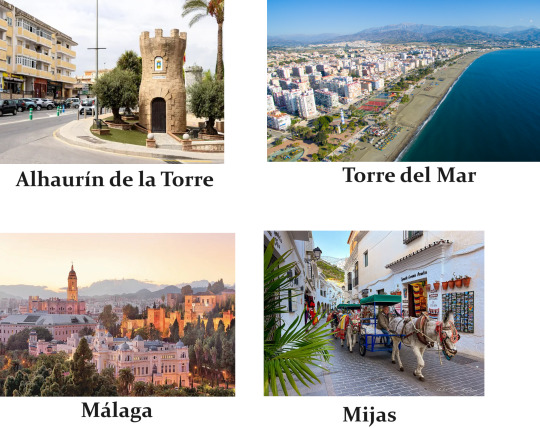
CÓRDOBA:
OT 2020: Córdoba (Hugo Cobo), Adamuz (Rafa Romera)
OT 2023: Córdoba (Álex Márquez)
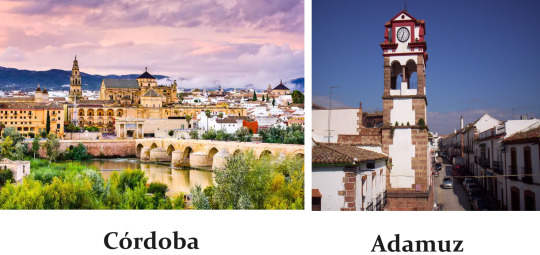
SEVILLA:
OT 2017: Dos Hermanas (Marina Rodríguez)
OT 2018: Bormujos (Famous Oberogo, he's Nigerian)
OT 2023: Sevilla (Álvaro Mayo)

CÁDIZ:
OT 2018: San Fernando (Julia Medina), Sanlúcar de Barrameda (Dave Zulueta)
OT 2020: Barbate (Jesús Rendón, Javy Ramírez)

CEUTA:
OT 2020: Ceuta (Gèrard Rodríguez)

LAS PALMAS:
OT 2018: Gáldar (Marilia Monzón)
OT 2020: Las Palmas de Gran Canaria (Eli Rosex, Nia Correia - she's half Cape Verdian)
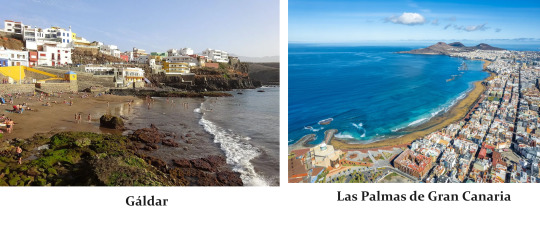
SANTA CRUZ DE TENERIFE:
OT 2017: San Cristóbal de La Laguna (Ana Guerra), Adeje (Agoney Hernández)
OT 2018: Adeje (Damion Frost, he's German)
OT 2023: San Cristóbal de La Laguna (Cris Bartolomé, he's half Equatorial Guinean), Santa Cruz de Tenerife (Suzete Correia, she's Sao Tomean)

#vivitalksot#spain#map#sorry for the mess in barcelona#i was trying to place the dots in more or less where the town was#but in the end it just looks bad. sorry :(
13 notes
·
View notes
Photo

by Paul Lukin
#paul lukin#hand#old#poem#poetic#poetry#visual#art#artistic#fine art#b&w#stop#war#storytelling#photojournalism#photodocumentary#documentary#photography
375 notes
·
View notes
Text
ПРИВІТ
I’m Sem, a comics writer from Ukraine. I’ve done some indie stuff with my friends and contributed shorts to DOWN BELOW - a noir anthology based around Greek Myths, from the very kind folks over at Limit Break Comics, edited by Gary Moloney and Paul Carroll; and LOWER YOUR SIGHTS - a charity anthology to benefit the children of Ukraine, published by Mad Cave Comics and edited by Chas Pangburn.
I’ve worked with Mart, Sofiia Lyt, Andriy Lukin and more, all amazingly talented comics creators.

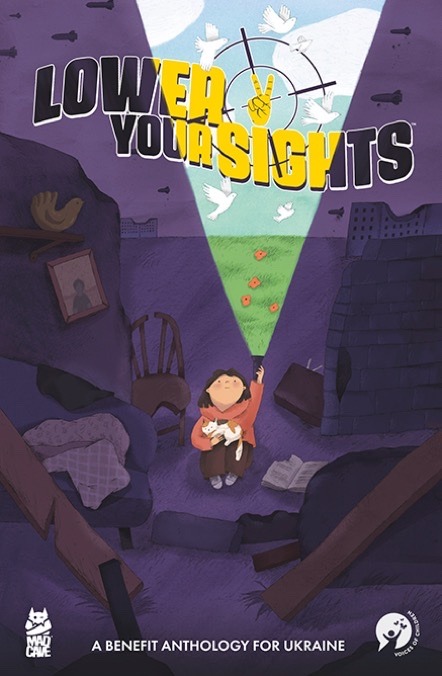
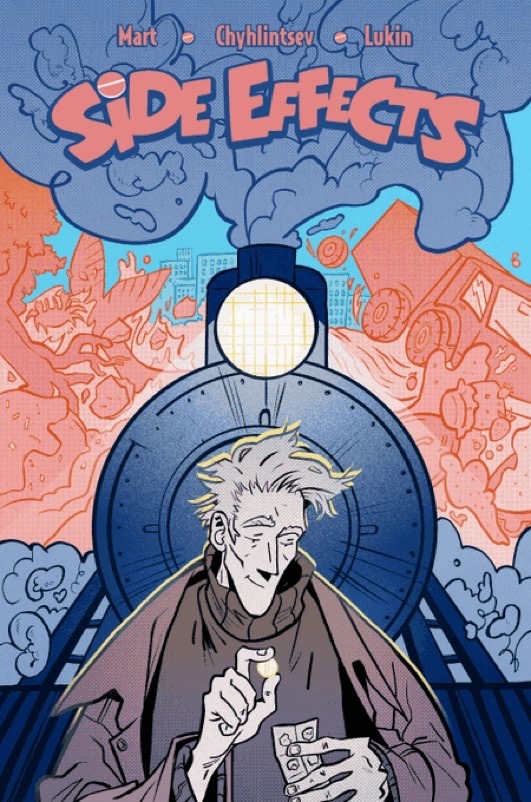

145 notes
·
View notes
Text
Now Available: Being Together Precedes Being, A Textbook for The Kids Want Communism (Archive Books, 2019)
Edited by Joshua Simon
Copies available here.
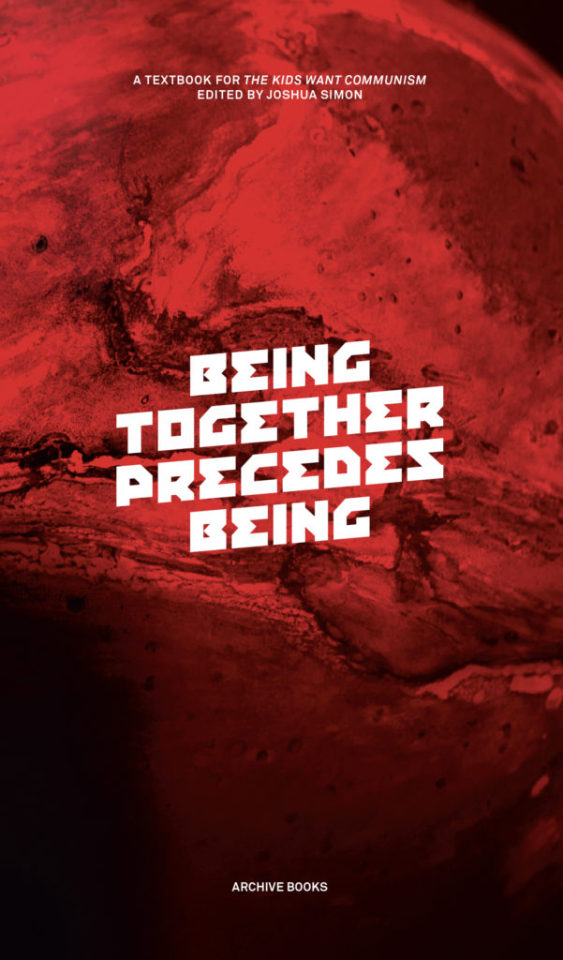
Even as global capitalism’s extremes of inequality, violence, nationalism, and imperialism expropriate the lives and futures of most of the planet, hope for another future, one of justice, solidarity, equality, and life, continues to burn. The works collected here not only attest to the fact that the kids want communism. They fuel the desire for communism with new memories of its past and imaginings of what communism can be for us again.
— Jodi Dean, author of The Communist Horizon
We want what we got! This riotous, ravenous collection of communisms past, present and future is what we want and what we got, what we’ve had, what we have, and what we can have again. But the only way to have it is to share it. And the only way to share it is to share it all. So share this amazing book that was brought together to bring together.
— Stefano Harney, co-author with Fred Moten of The Undercommons: Fugitive Planning and Black Study
In the turmoil leading to the October revolution Lenin wrote about the importance of finding a new slogan that will capture the totality of a specific historical situation. “The Kids Want Communism,” the title of the series of exhibitions documented in this volume, may be the appropriate slogan for today. This book brings new passions and joys to the spirit of communism, and reminds us that communism may be the truly human way of being together.
— Noam Yuran, author of What Money Wants: An Economy of Desire
This volume offers so much more than an updated version of Sartre’s famous dictum that existence precedes essence. Combining theory and practice, art and philosophy, politics and aesthetics, it is a resounding call to make communism a thing of the present.
— Bruno Bosteels, author of The Actuality of Communism
Contributions by Bini Adamczak, Odeh Al Ashhab, The New Barbizon Group (Asya Lukin, Natalia Zourabova, Olga Kundina, Anna Lukashevsky, Zoya Cherkassky) Toy Boy, Diego Castro, Angela Dimitrakaki, Paul Eluard, Max Epstein and Yuri Primenko, FAMU Archives (Piyasiri Gunaratna, Nosratollah Karimi, Nabil Maleh, Krishma Viswanath), Stano Filko, iLiana Fokianaki, Agnes Friedrich and Ivonne Dippmann, Tal Gafny, Jonathan Gold, Irena Haiduk, Nir Harel, Ronny Hardlitz, Raana Harlap, Micah Hesse, Yota Ioannidou, Nikita Kadan, Jakob Kösten, Konstantinos Kotsis, Mati Lahat, V.I Lenin, MAKI Archives, Alelsandr Medvedkin, Ohad Meromi, Olaf Nicolai, Tamar Nissim, Antonis Pittas, Praxis School Archive, Yakov Protazanov, David (Rabino) Rabinovici, Oleksiy Radynski, Yorgos Sapountzis, Joshua Simon, Tereza Stejskalová, Ian Svenonius, Kuba Szreder, Piotr Szulkin, Pelin Tan, The Union of Soviet Artists (Vasil Artamonov, Dominik Forman, Michael Hauser, Alexey Klyuykov, Avděj Ter-Oganjan), Vladimir Vidmar, Vangelis Vlahos, Nicole Wermers, Tony Wood, Noa Yafe, Dana Yoeli and Hila Laviv.
Specters are haunting the globe—the specters of anticommunism. From the European Union and its erosion to the disastrous “war of terror” and the destruction of the welfare state, from Wahhabism to neoliberalism, from debt economy to privatization, from game theory and disruptive innovation to cybernetics and the deployment of computerized surveillance/entertainment devices—all these anticommunisms are fighting one another, and they are now haunting us. What began with the implosion of real existing socialism almost thirty years ago comes full circle with the current collapse of the neoliberal arrangements that were then constituted.
Being Together Precedes Being offers a text book for the project “The Kids Want Communism,” which was initiated towards the 99th anniversary of the Soviet Revolution of October 1917 as a series of exhibitions, symposiums and conferences, screening programs, publications and a summer camp. In this textbook, communism does not merely describe an “us versus them” relation, but also offers that we are becoming the future. This trajectory of communism runs parallel to us at every single moment and its guiding principle is that being together precedes being.
Also see here.
3 notes
·
View notes
Text
2021-22 North Bay Battalion Roster
Wingers
#9 Josh Currie (Pickering, Ontario) A
#15 Anthony Romani (Pickering, Ontario)
#16 Owen Van Steensel (Middlesex Centre Township, Ontario)
#18 Owen Outwater (Ottawa, Ontario)
#21 Brandon Coe (Ajax, Ontario) A
#22 Matvey Petrov (Moscow, Russia)
#27 Mitchell Russell (Barrie, Ontario) C
#29 Nic Sima (Mississauga, Ontario)
Centers
#10 Michael Podolioukh (Toronto, Ontario)
#11 Liam Arnsby (Ajax, Ontario)
#14 Dalyn Wakely (Port Hope, Ontario)
#26 Kyle Jackson (Ottawa, Ontario)
Defensemen
#3 Cam Gauvreau (Hamilton, Ontario)
#4 Paul Christopoulos (Richmond Hill, Ontario)
#5 Tnias Mathurin (Ajax, Ontario)
#7 Simon Rose (Renfrew, Ontario)
#8 Avery Winslow (St. Pete Beach, Florida)
#24 Ty Nelson (Toronto, Ontario)
#28 Alexander Lukin (Moscow, Russia)
Goalies
#1 Joe Vrbetic (North Glengarry Township, Ontario)
#31 Dom DiVincentiis (Caledon, Ontario)
0 notes
Text
#5yrsago Edward Snowden speaks at Moscow airport, seeks Russia asylum en route to Latin America
Photo: Tanya Lokshina of Human Rights Watch
NSA whistleblower Edward Snowden invited human rights groups to meet him at Moscow's Sheremetyevo airport to discuss his options for seeking political asylum from the United States. He says his government is denying his right to seek asylum in retaliation for having exposed details of the NSA's previously secret spying programs.
At today's meeting, Snowden announced that he will apply for political asylum in Russia, despite Russian President Vladimir Putin's previously-stated condition that he stop publishing documents that harm America. According to tweets from people inside the meeting, Snowden's eventual goal is to reach one of the Latin American nations that has offered him asylum.
According to the Associated Press, the following people were among those at the meeting: Russian MP Vyacheslav Nikonov, Amnesty International Russia's Sergei Nikitin, Tanya Lokshina of Human Rights Watch, Russian presidential human rights ombudsman Vladimir Lukin, and attorney Genri Reznik.
Separately, Wikileaks identified another participant as one of their representatives. Wikileaks has also published a copy of Snowden's statement to human rights groups here.
The Guardian, which received leaked documents from Snowden and broke the news they revealed, has a liveblog covering the story.
Tanya Lokshina of Human Rights Watch captured the photo above, which is the first new photograph we've seen of Snowden since the story first spread weeks ago. HRW issued this statement earlier, supporting Snowden's right to asylum.
Wikileaks tweets that the person to the left of Snowden is "Wikileaks' Sarah Harrison."
Video is not permitted inside the meeting between Snowden and roughly 8 Russian human rights figures, according to Ellen Barry of the New York Times, who is there.
Rough machine translation of the Russian description at this RT link:
Today, the former CIA officer asked for a meeting at 17:00 Moscow time in the transit area of the airport. Human rights activists and lawyers have expressed willingness to meet with Edward Snowden. Invitations to the meeting were sent to Sergey Nikitin of Amnesty International, Mikhail Krasnov of Transparency International, Inna Khadzhieva of Human Rights Watch, Yakubu Zyuleku.
Below, Paul Sonne, Moscow correspondent for The Wall Street Journal:
Scrum to end all scrums. #Snowden #NSA pic.twitter.com/ldOyjnVnKL
— Paul Sonne (@paulsonne) July 12, 2013
New York Times Moscow correspondent Ellen Barry says Tanya Lokshina of Human Rights Watch, who is inside the no-video-allowed meeting, reports Snowden says that Venezuela, Russia, Bolivia, Nicaragua, and Ecuador have all offered him asylum. He thanked them, and says he accepts any and all offers, present and future. He now asks for help reaching Latin America safely and will submit an asylum claim to Russia today, so that he can head to Latin America.
Barry's tweets from the scene are collected below.
In a recent Washington Post op-ed on the controversy around Snowden's asylum pleas, Daniel Ellsberg wrote:
Many people compare Edward Snowden to me unfavorably for leaving the country and seeking asylum, rather than facing trial as I did. I don’t agree. The country I stayed in was a different America, a long time ago.
Here are Boing Boing's coverage archives of the Edward Snowden story.
https://boingboing.net/2013/07/12/press-scrambles-for-an-anticip.html

3 notes
·
View notes
Text
3 Heavyweights in the ring: As US-China hostility escalates, what role will be played by the world’s other great power, Russia?
‘Don’t expect a new world order to emerge post-Covid-19. It will be the current big three who dominate, with an informal alliance between Russia and China crucial to reining in American ambitions’ — Artyom Lukin
By Artyom Lukin, associate professor of international relations at Far Eastern Federal University in Vladivostok, Russia.
— 18 May, 2020

Main: American and Chinese flags © Getty Images / Simon Lehmann; inset: Vladimir Putin © Reuters / Kremlin / Mikhail Klimentyev
Don’t expect a new world order to emerge post-Covid-19. It will be the current big three who dominate, with an informal alliance between Russia and China crucial to reining in American ambitions.
When Covid-19 began to consume the world a few months ago, there were hopes that maybe the pandemic would moderate geopolitical rivalry and encourage international collaboration. What we have seen instead were a spike in US-China tension, a US-British naval flotilla entering the Barents Sea in proximity of Russia for the first time since the 1980s, clashes on the Sino-Indian border, and other developments showing that even a shared disaster is not capable to bring peace among nations, especially among major powers.
What is a great power?
It is difficult to deny that we live in an era of intensifying great-power competition. This is now the central premise of US foreign policy and national security strategy, while other major nations have, openly or implicitly, adopted the same proposition.
But what is a great power? International relations theory is pretty straightforward on this: “A great power is a state that can contend in a war against every other state in the system and thus can independently provide for its own security vis-a-vis any other country.”
In his book The Rise and Fall of the Great Powers, Paul Kennedy defines a great power as “a country which is willing and able to take on any other” state in the international system. And in U.S. Foreign Policy: Shield of the Republic, Walter Lippmann argued that only “the great powers can wage great wars. Only the great powers can resist a great power.”

Is the US abandoning its war on Iran to focus directly on the so-called China threat? A US Navy Marines member during mixed maritime exercise with US Navy and Saudi Royal Navy, at Saudi Military Port, Ras Al Ghar, Eastern Province, in Jubail, Saudi Arabia February 26, 2020 © Reuters / Hamad I Mohammed
Soft power may be important in the modern world. But it is first and foremost military might – and the willingness to use it – that makes a great power. You can be rich like Saudi Arabia, have an enviable quality of life like Canada, be technologically advanced like South Korea or have vast natural resources and a huge population like Brazil or Nigeria. But none of that will give you the status of a great power unless your country achieves military preponderance over all other nations – except, of course, your peer great powers.
Unfortunately, we still live in a world where the ability to kill, maim and destroy on a massive scale constitutes the single most important leverage of power. And it is not in a fit of absentmindedness that some nations pursue military primacy. They do it because they want to be able to impose their will upon others – an inherent urge the founder of international political theory Hans Morgenthau called ‘animus dominandi.’
The list of the contemporary great powers is pretty short: the United States of America, Russia and China. It is these three nations that are far ahead of others in their capacity to wage war. The US, admittedly, has the strongest military among the three, giving it superpower stature, but that does not annul the great-power status of Russia and China: the former is the only country in the world capable of obliterating the US with a nuclear strike, while the latter, steadily building up its nuclear forces, is approaching such a capability.
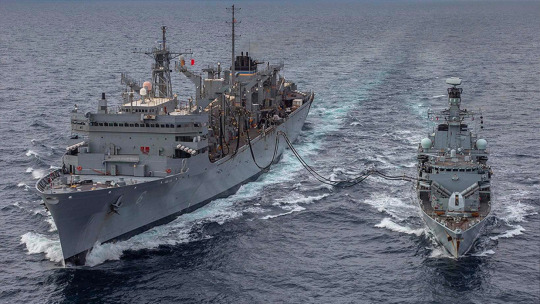
US muscle-flexing threatens to open Arctic front in new Cold War with Russia. The Royal Navy Duke-class frigate HMS Kent (F78), right, replenishes from the fast combat support ship USNS Supply (T-AOE-6) in the Barents Sea while training in the Arctic Circle. © U.S. Navy photo courtesy of the Royal Navy by Royal Navy Photographer Dan Rosenbaum
In 2008, Russia got involved in a military conflict with Georgia, a partner of both America and NATO. In 2014, Vladimir Putin changed the borders of another Western ally, Ukraine, by reclaiming Russian-populated Crimea.
China has been less audacious so far, but its salami-slicing tactics in the South China Sea have been quite a success, with the Americans essentially powerless to prevent Beijing’s growing dominance in that strategically crucial body of water.
Don’t write Russia off as a great power
The current great-power roster of three is unlikely to change in the foreseeable future. Germany and Japan could theoretically seek to regain the great-power ranking they once had. However, Berlin and Tokyo, as well as London and Paris, are firmly incorporated into the structures of the US-led alliances, having exchanged full sovereignty for the comfort of an apparently safe existence under American hegemony.
India is probably the most plausible candidate to become another great power. It has both the potential and ambition to reach for the top tier of the global power hierarchy. However, it will still take a while for Delhi to make it to the premier league of world politics.
If India is the most likely candidate to enter the great power ranks in the future, isn’t Russia the most obvious one to drop out soon? It is almost a conventional wisdom that Russia is a declining nation, with poor demographics and a shrinking share of the world’s economy.
Yet reports of Russia’s impending demise as a great power may be exaggerated. Let us not forget that great powers are primarily defined by their war-fighting capabilities. Russia’s stock of formidable weapons and military-related technologies, accumulated over many decades, as well as the wealth of its war-fighting experience, will allow Moscow to continue as a first-rate geopolitical player for a long time yet.
It also matters that Russia is the most experienced of the three contemporary great powers. The notion of a Great Power first came into being after the Napoleonic Wars, when the four victorious powers of Russia, Britain, Austria and Prussia established the Concert of Europe, later joined by France. Tsar Alexander I, along with the Austrian Foreign Minister Prince Metternich and the British Foreign Secretary Lord Castlereagh, was a founder of the great-power concert that secured relative peace and stability in Europe for almost a century.
America became a great power a century later, whereas China is only now learning the art of a modern great power. Putin and his foreign minister, Sergey Lavrov, are full heirs to the Russian tsars’ foreign policy that combined military muscle with adroit diplomacy, even though debacles, such as the 1853 Crimean War, did happen from time to time.
The great-power entente of Moscow and Beijing
The dynamics of the modern great-power triangle are determined by the primordial law of international politics – the balance of power – whereby lesser poles pull together to counter the strongest force. This is why Russia and China have formed a quasi-alliance in opposition to the American superpower. Their entente has much less to do with the supposed commonality of domestic political regimes in China and Russia, the so-called “axis of authoritarians.”
In fact, Russia and China established their “strategic partnership” in 1996, the same year the Russian president Boris Yeltsin, who was seen as a liberal by the West, was running for re-election with the aid of American political strategists.
And Russia’s hybrid-type political system of the present day is no more similar to the Chinese party state than it is to American liberal democracy.
Speaking of historical continuity, in the late nineteenth century Tsarist Russia formed an alliance with republican France to prevent Germany from dominating Europe. This makes it unlikely that the Sino-Russian entente will end any time soon. It will continue, and will probably become even more solid, as long as Moscow and Beijing see the US as the overweening power. Alexey Navalny, the leader of the anti-Putin opposition in Russia, bears many hallmarks of a great-power nationalist. Should he or someone like him move into the Kremlin, Russia’s foreign policy will not change that much.
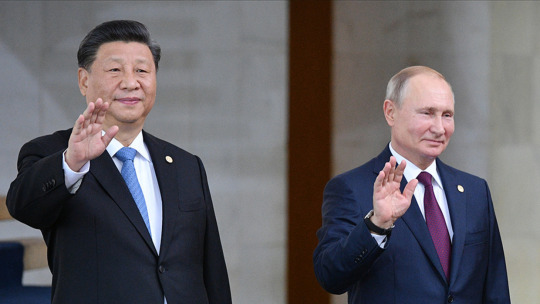
Vladimir Putin and XI Jinping © Sputnik / Ramil Sitdikov. Western media is WRONG, Russia & China are NOT going to clash over Covid-19
The great-power mission in the twenty-first century
Unlike in the nineteenth century, it is now impossible for a few great powers to run the world. If there is to be a global concert of powers in the twenty-first century, it needs to include many more states, not only those that possess military pre-eminence but also those that play major economic and social roles. However, as Paul Kennedy observes, the primary responsibility of the great powers is “to prevent any actions that might lead to a world war. Their job is simply to hold firm the iron frame that keeps the international system secure.”
Alas, as things are shaping up now, the great power triangle may not live up to this task.
The statements, views and opinions expressed in this column are solely those of the author and do not necessarily represent those of RT.
0 notes
Text
Andreea Raducan, inclusa in International Gymnastics Hall of Fame
0 notes
Text
i saw there were some tierlists of OT circling around i couldn't help myself. there's one ranking all OT contestants from 2017 to 2023 and another one with only OT 2023 contestants hehe, i will add translation to the tiers and the names of each tier below the cut <3
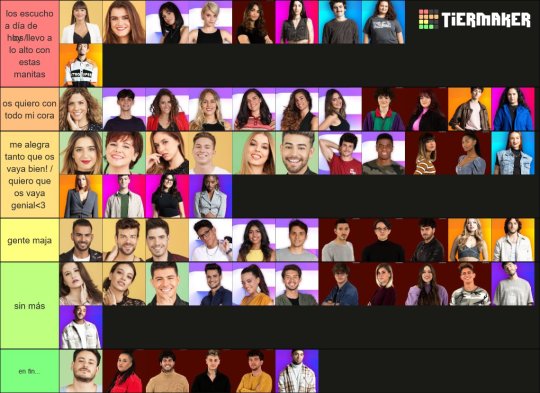
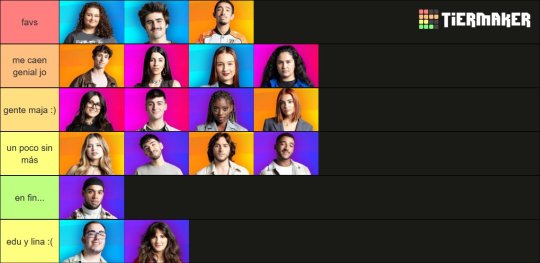
ALL OT CONTESTANTS:
i listen to them to this day / i will make you a star with these two hands: aitana, amaia, natalia lacunza, alba reche, anaju, naiara, martin, bea, paul thin
i love you with all my heart: miriam rodríguez, dave zulueta, marilia monzón, maría escarmiento, marta sango, julia medina, sabela ramil, anne lukin, ariadna, álvaro mayo, salma
i'm so happy you're doing great! / i want you to succeed <3: lola índigo, marina jade, mireya bravo, raoul vázquez, nerea rodríguez, agoney, miki núñez, famous, chica sobresalto (maialen), nia, ruslana, violeta, juanjo, chiara, suzette
cool people: juan antonio, ricky merino, roi, alfonso lacruz, áfrica, damien, bruno, flavio, javy ramírez, denna, lucas
meh: thalía garrido, ana guerra, alfred garcía, joan, noelia franco, carlos right, gèrard, samantha, eva b, nick maylo, álex márquez, omar
yikes...: cepeda, eli rosex, rafa romera, hugo cobo, jesús, cris
OT 2023:
faves: bea, martin, paul thin
i like them a lot: álvaro mayo, naiara, ruslana, salma
cool people :) : chiara, juanjo, suzette, violeta
meh: denna, álex márquez, lucas, omar
yikes...: cris
edu and lina :( [they were the two expelled in gala 0]
#vivitalksot#i would like your takes if you have them please thank you#you can really tell what's my favorite edition from the first chart sjdjsdj#and as you can see i'm liking quite a lot this edition as well !#anyways. salvar suzette y bea favorita <3
2 notes
·
View notes









